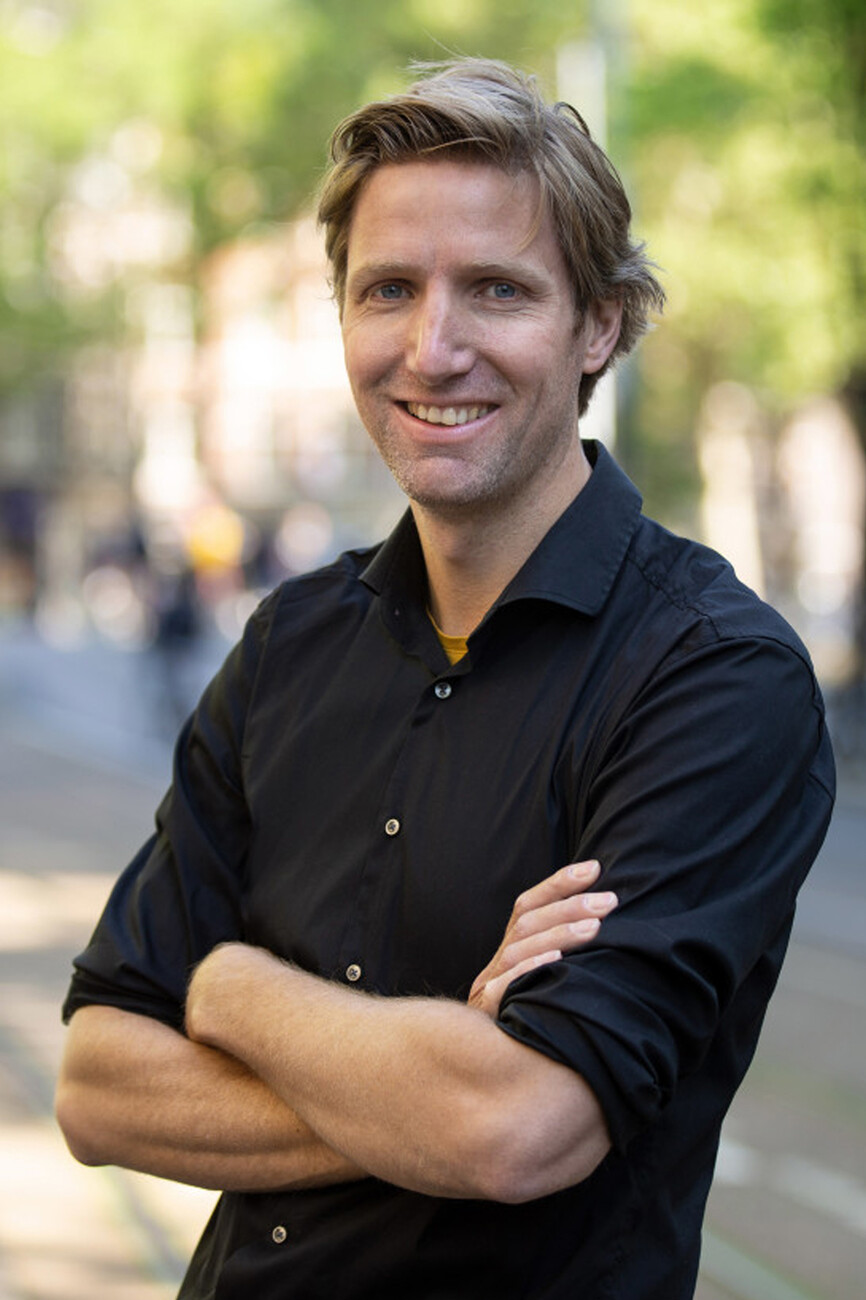MOBILITY
Rethinking Traffic
Gabriela Beck: In the introduction you write that your contrary world view with regard to that of Marco te Brömmelstroet was the impetus to write your book Movement – how to take back our streets and transform our lives. How did this come about?
Thalia Verkade: For me, the street was just an area outside my front door that I crossed on my way to another place, either on foot, by bike or by car. Road markings, lanes and light signals were all necessary to keep people safe, and I didn't think much more about them. While waiting at a red light, the most I ever thought about was why traffic couldn't be regulated to be faster and more efficient. Then, while researching an article on bicycle highways, I met Marco, an expert on urban mobility at the University of Amsterdam and founding director of the Urban Cycling Institute. As a social scientist, he asked questions like “Why do we accept that public space is unsafe? Why do people in our mobility system increasingly behave like moving mechanical parts instead of living, thinking people?”.
Marco, a whole series of books on the subject of mobility are being published at the moment. Why do you think this is happening?
Marco te Brömmelstroet: I think that many of the negative effects of our way of life are slowly becoming visible, and directly affect our everyday life. This not only concerns mobility, but also economic growth, agriculture, consumption habits, working conditions et cetera. Mobility in general and our roads in particular just show very clearly how devastating the negative effects of some habits we take for granted are. With regards to traffic, this is literally at our doorstep. But that also makes the problem something we can change.
Thalia, you write that becoming aware of an issue has a lot to do with language. In your book, you use the term “windshield view of the world” in this context. What do you mean by that?
Thalia Verkade: You know the parable by David Foster Wallace about two young fish who are swimming along and happen to meet an older fish who says, “Morning boys, how's the water?” The two young fish swim on, look at each other and eventually one says, “What the hell is water?” This epitomises how notions of “street” are constrained by the mobility-related language in which we all speak. Here's an example: Why do we call a road that you would neither want to live on nor walk along a main road? And why do we speak of a separate cycle lane when it's actually motorists, with their road, who've been given a separate space. This kind of “windshield view” distorts reality.
What do you think the biggest obstacles are with regards to transforming our cities?
Thalia Verkade: We're all stuck in the logic of mobility-related language and models. This logic has permeated everything: policies, professional literature, our imagination – and has been transformed into concrete and steel on our streets. Once we see that we truly have other choices, and use a different language to talk about our public space, political debate will be very different indeed. I think we need courageous politicians who realise this and then give people these new choices – for example, re-establishing spatial proximity instead of just planning for fast mobility. Until we realise that the roads we have now are also a result of choices and policies, we'll remain right where we are.
During the corona pandemic some cities and towns took the opportunity to test new approaches, such as pop-up bike lanes and limited-traffic zones, things that would otherwise have been politically unfeasible. Some changes have survived, but most have disappeared again. Did we miss an opportunity?
Thalia Verkade: Yes, in some cities, but in others I think the transformation is going on at a more profound level. For example, I love how Paris has adopted the 15-minute city model. This is a model for a fundamentally different approach to cities: Accessibility instead of higher speed. If we can reach our destinations on foot or by bike again, that would greatly help us to become less dependent on the complicated mobility system we have now.
Marco te Brömmelstroet: What I saw during the pandemic was that in most cases we continued to look for ways to optimise transportation without questioning the real underlying mechanisms. The way we normally think about mobility, the way these thoughts are embedded in our norms, guidelines, models and technology, this wasn't questioned at all. One exception was Paris, where the pandemic was an impulse for a really new narrative: the 15-minute city. This shows that completely rethinking mobility by itself is not enough. We really need to rethink our society as well. In other words, we need to question our assumptions about people being selfish and isolated individuals and roads as efficient pipeline networks that are only there to transport us from A to B.
If you were to make a prediction, how do you think mobility will be organised in the European city of the future?
Marco te Brömmelstroet: If we want to solve our fundamental mobility problems, we must abandon the underlying narrative of mobility as being a necessary evil as we get from A to B.
Thalia Verkade: Let's first focus on making better choices in the present by realising that we're still stuck in a thought pattern that's 90 years old, namely transportion technology as a model for how we deal with roads in our lives. What if this is an anomaly we're currently in? A strange time when roads have not been built for people? What if all we had to do was dare to really face this problem and then radically change it?

Movement
How to Take Back our Streets and Transform our Lives
Authors: Thalia Verkade and Marco te Brömmelstroet
288 pages
Language: English
ISBN 978-1911344971
Price: 12.39 euros










